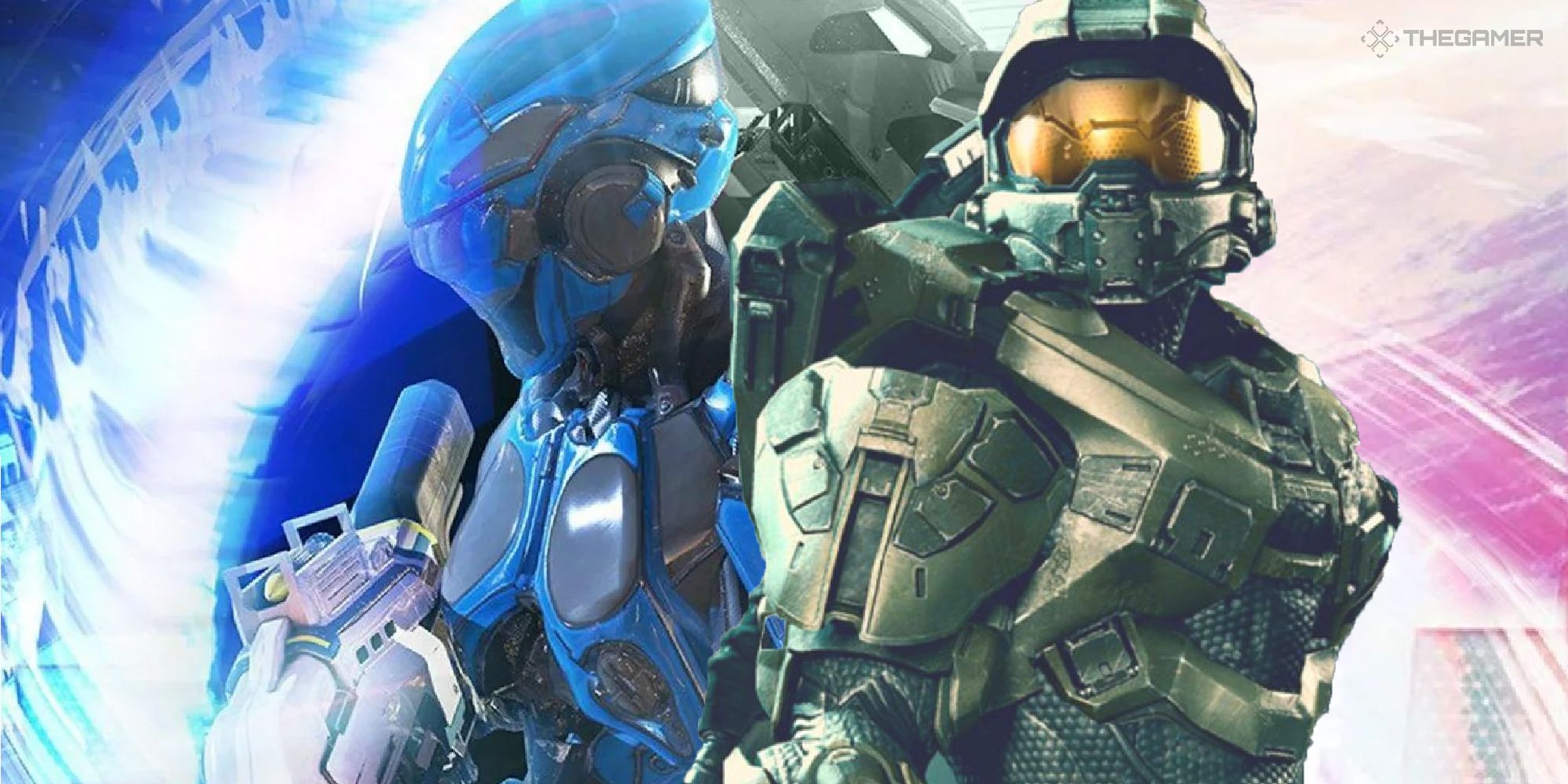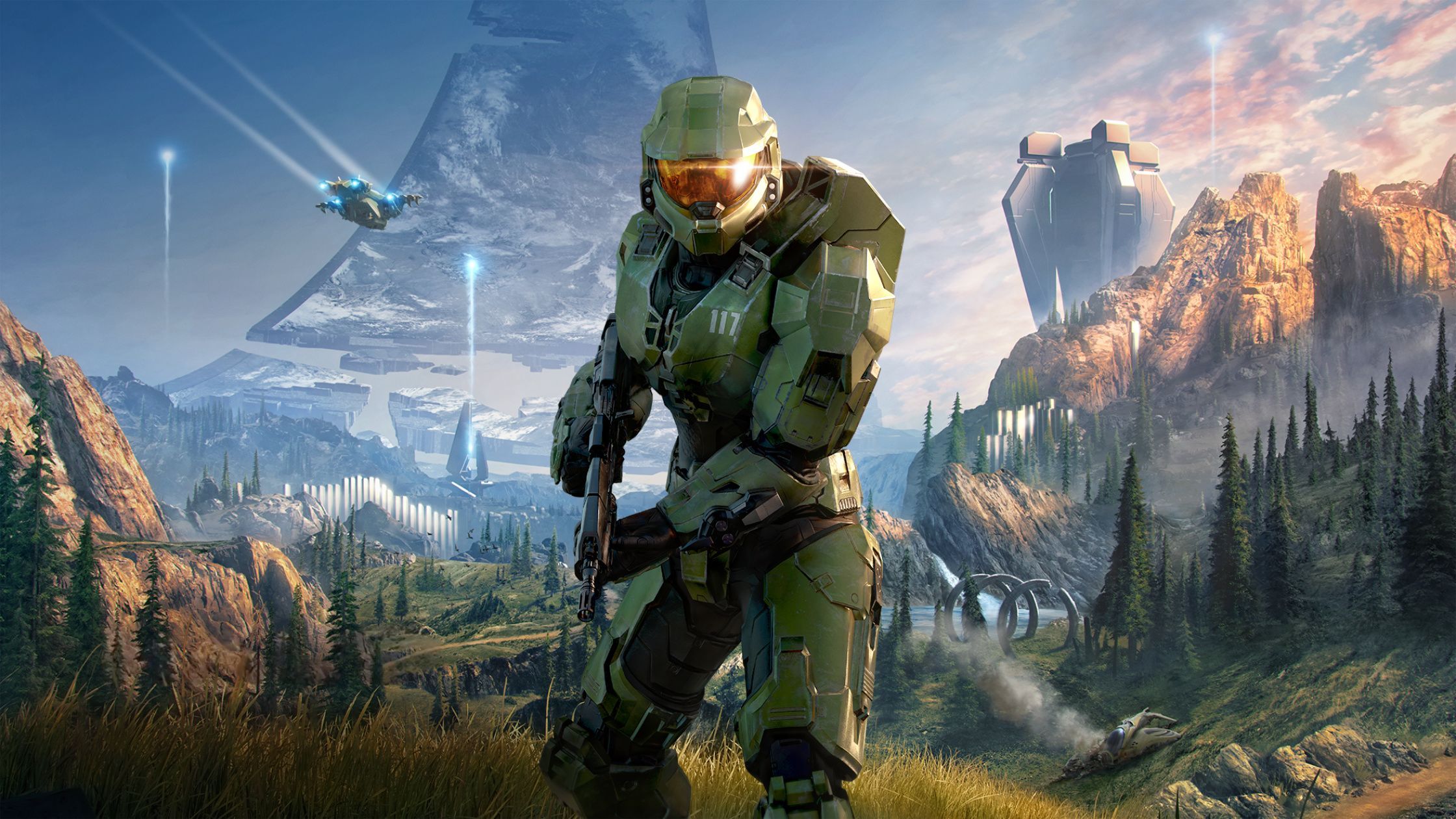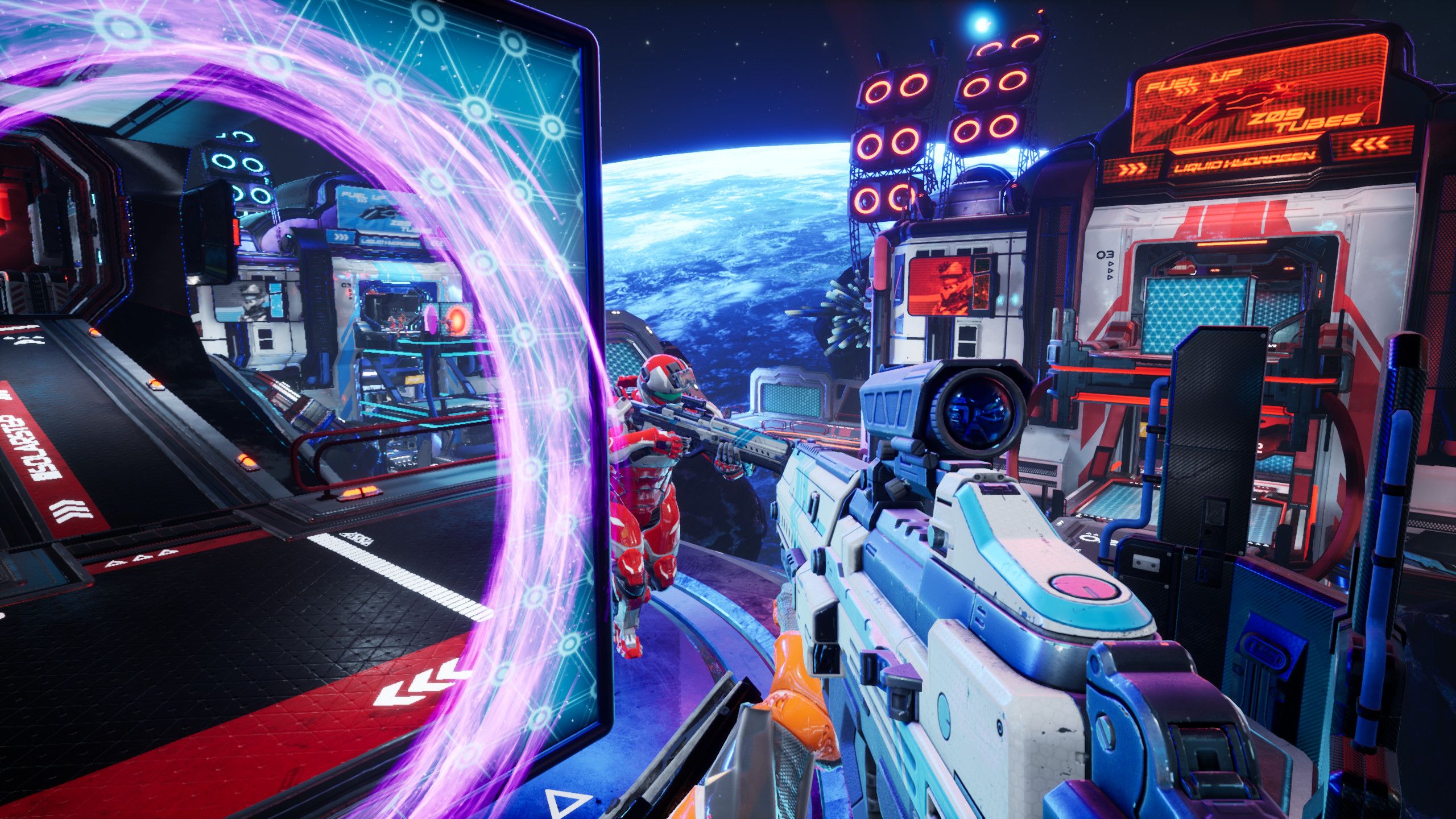Splitgate is a delight. The first-person shooter has been around for ages, but its recent arrival on consoles as it entered open beta saw the game reach newfound levels of popularity, and I’m so happy it finally has a chance in the spotlight. While the aesthetic component of Splitgate is garish and unoriginal, its mechanical ideas are so compelling and well realised that it’s easy to look past its generic exterior and admire the brilliance within.
If you haven’t played Splitgate, I’ll run things down with a simple elevator pitch - it’s Halo meets Portal. You and a team of fellow marines sprint around a map in search of your opponents, and the side that earns the maximum amount of kills first will emerge the victor. It’s a simplistic spin on shooter classics like Quake or Unreal Tournament with a modern twist. At the touch of a button you can spawn a portal onto select surfaces, creating a gateway to another surface wherever you like on the map. If it’s within reach, chances are you can spawn a portal and make your way there.
It’s such an obvious idea that I can’t believe nobody has come up with it before, but Splitgate implements it so seamlessly into the shooter experience that it’s hard not to be blown away. Normally you will have to spend several hours with a game before feeling at peace with its mechanical offerings, but Splitgate presents a core idea that is so approachable it took me just a single match to master what the act of portal hopping was capable of. It changes the entire dynamic of team deathmatch, allowing me to get the drop on snipers in a matter of seconds instead of strafing clumsily across the map in the hopes I don’t get murdered.
If I predict a foe is coming around the corner, I can spawn a portal, hop inside, and get the drop on them instantly. Ditto for them, so I always need to be aware of my surroundings and know when to close enemy portals or produce one of my own to escape an unexpected scrap. Splitgate is so frenetic in its pacing that death rarely feels like a frustration, since you’re so often thrown back into the thick of things with no time to ruminate on past mistakes. This means you’re always improving, learning to take advantage of its central mechanics alongside a selection of weapons that, like much of Splitgate, are generic yet effective. Taking the world by storm mere months before Halo Infinite comes onto the scene puts this game in a strange position, especially when 343 Industries’ latest effort continues to underwhelm fans who have been waiting years for Master Chief’s return.
Both Splitgate and Halo Infinite have a free-to-play approach to multiplayer, adopting a seasonal model with cosmetics, updates, and more to keep you hooked for months on end. Halo has the pull of a classic series and endless amounts of lore, plus far more marketing power than its competitors could ever be capable of, but it hasn’t seized its moment like Splitgate has. There are no expectations to live up to here, so the portal-hopping shooter doesn’t have a legacy to abide by or surpass in order to justify its existence. It’s just a bunch of silly fun and an effective execution of an idea we’ve never seen in the shooter space before. That alone is enough to ensure it succeeds, and to some it will be enough to make it shine far brighter than Halo Infinite later this year.
I’m not entirely convinced this will happen, although Splitgate does a more robust job of expressing the level of skill, joy, and unexpected chaos that classic Halo multiplayer was so renowned for. All of those qualities are here, improved upon with a fascinating central mechanic that refreshes the formula popularised by Bungie in a number of welcome ways. I haven’t played nearly enough of Splitgate to determine its longevity, and besides, that won’t fully make itself known until future updates land. Now that the game has made a splash, it needs to work to maintain its audience in a genre that is constantly evolving. But right now, it’s offering something you can’t find anywhere else, and all for the price of absolutely nothing. That is, if you don’t want some ugly cosmetics.



